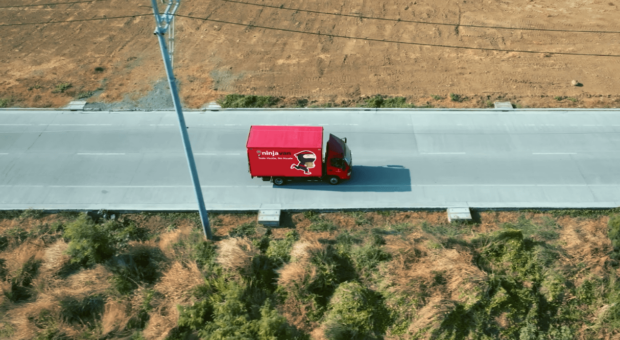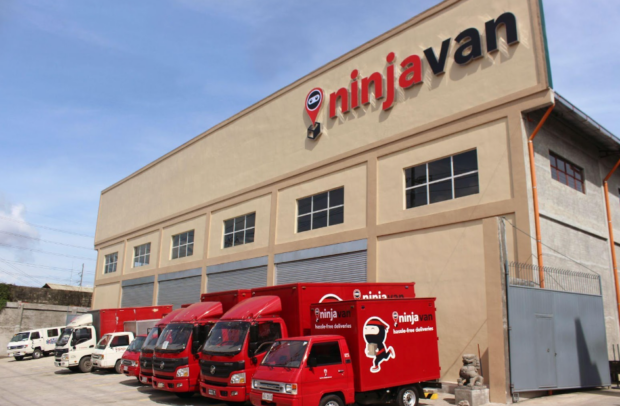Supply chain innovations for the modern Filipino business
Written by: V.P., Country Head, Ninja Van Philippines
Inventory and supply chain management can be as challenging as the diversity of culture, language, and habits that make up our archipelagic nation of more than 7,600 islands.
The logistics industry as a whole is as fragmented as the archipelago we are trying to serve – and businesses are often only as successful as their ability to make its products accessible to where their customers need them.
Batanes to Bongao: building a nationwide network

Across fields, mountains, and even seas – Ninja Van has the nationwide network to serve inventory delivery needs of businesses of all sizes.
In this exciting post-pandemic consumer landscape where both e-commerce and brick-and-mortar stores thrive together, a customer has never had so many touchpoints to interact with a product or brand. To enable this, logistics had to evolve too.
As recently as ten years ago, in the infancy of e-commerce in the Philippines, products still took up to two weeks to be delivered even within the Greater Manila Area. As adoption of e-commerce grew rapidly, so did customer expectations sharpen the delivery network coverage and speed capabilities of many courier companies. Ninja Van’s growth as a startup, tech-enabled logistics company reflected this transformation.
When Ninja Van was established in the Philippines in 2016, the company had to ramp up and ensure that Filipinos, wherever they may be ordering from, could be served by reliable logistics services. Ninja Van figured out how to make its technology asset-light and easily deployable, so shippers of all sizes can sell their wares to Filipinos from Batanes in the north, to Bongao in Tawi-tawi in the south.
Soon, the cogs of the company’s e-commerce logistics machine were working like clockwork – first mile picks up the parcels from sellers, the state-of-the-art facility in Cabuyao sorts these parcels with much improved accuracy, and hardworking last mile riders ply the roads, mountains, and seas across the country to make hassle-free deliveries happen.
Faster deliveries, smaller drops
On the flipside of this success in B2C delivery are the many crucial gaps in the Philippine supply chain sector. While many e-commerce shoppers enjoy fast delivery speeds, the same couldn’t be said for many businesses whose inventory and supply chain management systems face systemic inertia and a lack of innovation.
Traditional full truckload (FTL) and less than truckload (LTL) shipping services require many businesses to wait for entire truckloads to be full before they could ship out products to target destinations. The reality is that – with the advent of omnichannel retail, some products sell out faster than others, emphasizing that with logistics, flexibility is as crucial as speed.
Ninja Van has made it its mission then to enable businesses to gain access to this robust express logistics network they have built doing e-commerce. The company wants to enable businesses of all sizes to restock their stores as frequently as they need – with the cost optimization that comes with having smaller, more frequent drops instead of traditional truckload-based shipments.
This innovation is Ninja Restock – a business-to-business (B2B) logistics solution that operates on a pay-per-space framework. Whether you’re a fast-moving consumer goods (FMCG) or pharmaceutical company, or even a homegrown fashion brand looking to send small batches of products to retailers, franchisees, or even sari-sari stores, you need the agility to be able to serve these smaller drop requirements to support your sales and growth targets.
Restock helps businesses with supply and demand planning, particularly during seasonal fluctuations, helping prevent both undersupply and oversupply of products.

Trucks outside Ninja Van hubs ready to deliver products with frequent and smaller drops – enabling businesses to expand market reach.
No business left behind
Recent outlook has the size of the Philippine retail sector at upwards of USD 66 billion with the possibility of growing up to USD 97 billion in value by 2029. These exciting projections mean nothing, however, if businesses are unable to figure out the right logistics solutions that would enable them to ride this momentum.
With this innovation, Ninja Van hopes to help business unlock the potential of our second or third-tier cities and municipalities often perceived as inaccessible. The fast-growing coffee startup Pickup Coffee, for example, tapped Restock to do daily restocking of their outlets in areas such as Tarlac, Bacolod, Iloilo, and Cebu, aiding their rapid nationwide expansion.
“If you can dream it, then you can do it,” so goes a popular adage. Many businesses for sure have dreamed of expanding market access and ramping up growth – the best thing is that the logistics infrastructure already exists to make these dreams a reality.
Find out more about Restock here.
This article is brought to you by Ninja Van Philippines.
ADVT.